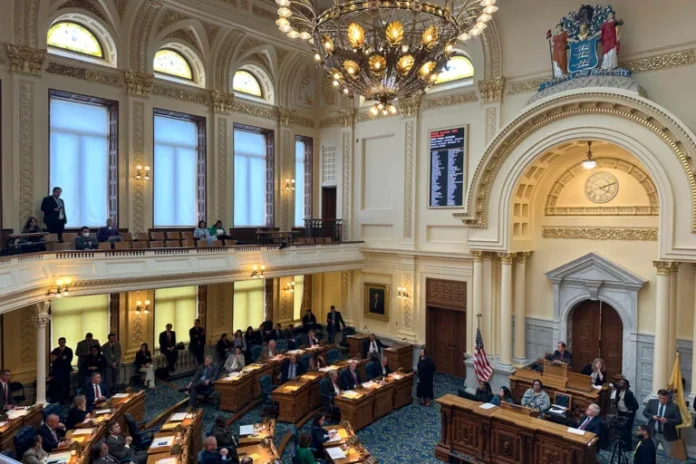New Jersey continues to see significant developments that impact both individual rights within the justice system and evolving societal choices for end-of-life care. Recent decisions from the state’s highest court are shaping legal proceedings, while the Legislature considers groundbreaking options for human remains.
Fifth Amendment Protections in Domestic Violence Cases
In a pivotal decision handed down on May 27, 2025, the New Jersey Supreme Court clarified the scope of Fifth Amendment protections in Prevention of Domestic Violence Act (PDVA) final restraining order (FRO) hearings. In the case of M.A. v. J.H.M., the unanimous Court ruled that a defendant in an FRO hearing can indeed invoke their privilege against self-incrimination. This means that individuals facing these civil proceedings are not compelled to answer specific questions if those answers could reasonably expose them to criminal charges. Crucially, the Court further held that no negative inference can be drawn by the court from a defendant’s decision to exercise this fundamental right.
This ruling is particularly significant because while PDVA hearings are civil in nature, their outcomes can have serious, “quasi-criminal” consequences, including potential criminal charges stemming from the same alleged incidents. Before this decision, defendants often faced a difficult choice: testify and potentially incriminate themselves in a future criminal case, or remain silent and risk an adverse inference being drawn against them in the FRO hearing. The Supreme Court’s decision aims to safeguard a defendant’s constitutional rights, ensuring they are not forced into such a dilemma. This does not grant a blanket immunity, however; the privilege must be invoked on a question-by-question basis when a reasonable risk of self-incrimination exists. This development underscores the complex interplay between civil and criminal law and highlights the ongoing evolution of legal protections in New Jersey.
A New Chapter for End-of-Life Choices: Human Composting on the Horizon
Beyond the courtroom, New Jersey is also at the forefront of discussions around alternative end-of-life practices. The Legislature is actively considering a bill that would allow for the composting of human remains, a process known as “natural organic reduction.” This innovative method offers an environmentally conscious alternative to traditional burial or cremation.
The proposed legislation, which recently passed the General Assembly with strong bipartisan support and is now moving through the Senate, would permit the “supervised decomposition” of a deceased person within a controlled environment, typically with natural materials like wood chips and straw. The process results in nutrient-rich, soil-like material that can then be used to nourish plants and trees, effectively returning the body’s nutrients to the earth.
This eco-friendly option is gaining traction across the nation, with New Jersey poised to become one of the latest states to legalize it. Proponents highlight its environmental benefits, including reduced carbon emissions compared to cremation and the conservation of land often used for traditional burials. While the process can take several weeks and may cost several thousand dollars, it provides a meaningful and sustainable choice for individuals and families seeking a different way to honor their loved ones and contribute to ecological restoration.
However, the concept is not without its considerations. Some cultural and religious groups, such as the Catholic Church, have expressed reservations, citing concerns about the dignity of the human body. As the bill progresses through the legislative process, these various perspectives will undoubtedly continue to be part of the public discourse.
Both the Supreme Court’s ruling on Fifth Amendment rights in domestic violence cases and the legislative movement towards human composting reflect New Jersey’s dynamic legal and social landscape. These developments illustrate a state grappling with profound questions about individual liberties and the choices available to its residents, from life’s most challenging moments to its final farewells.
For more information on legal and political developments shaping New Jersey, be sure to explore our politics section.












